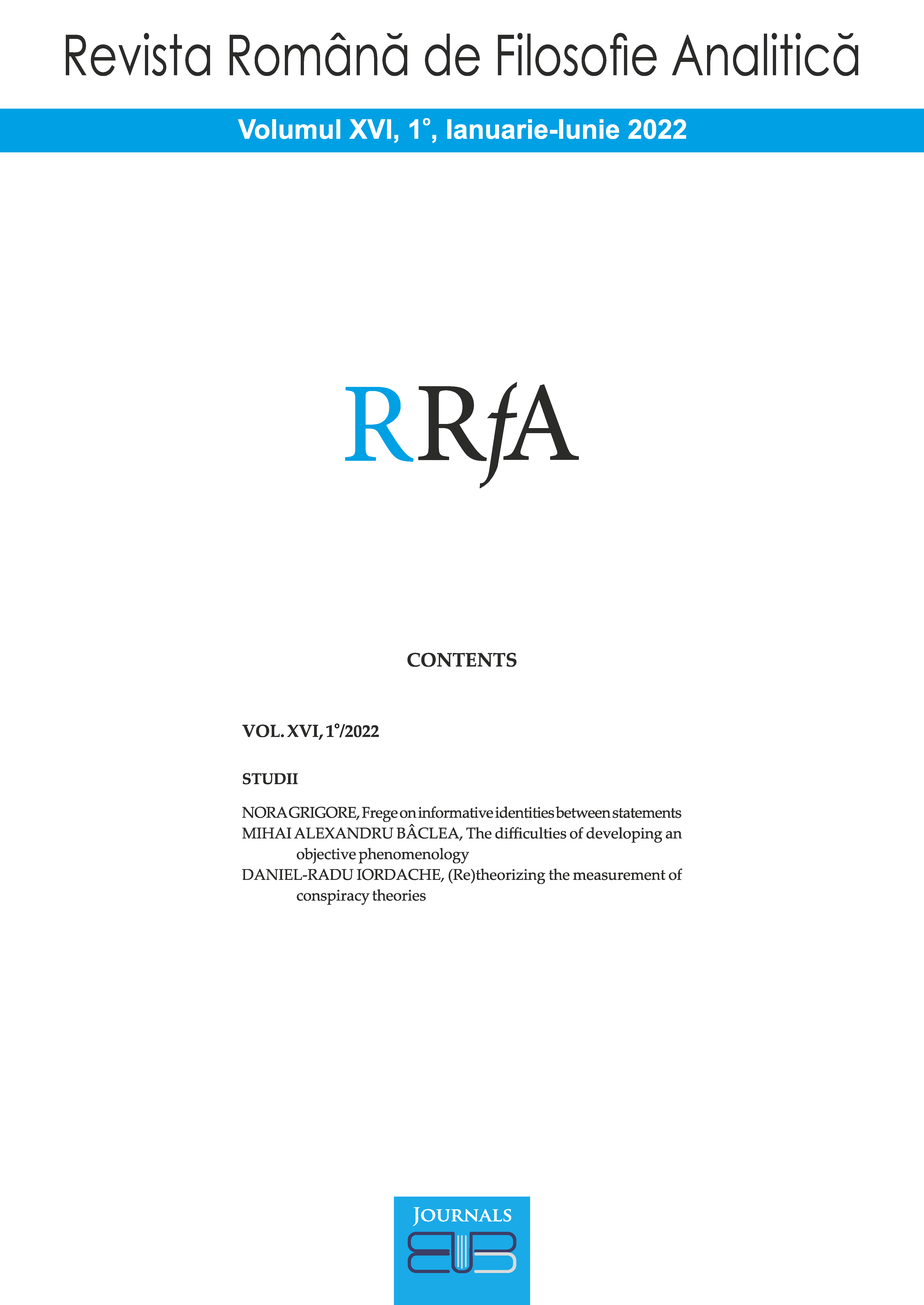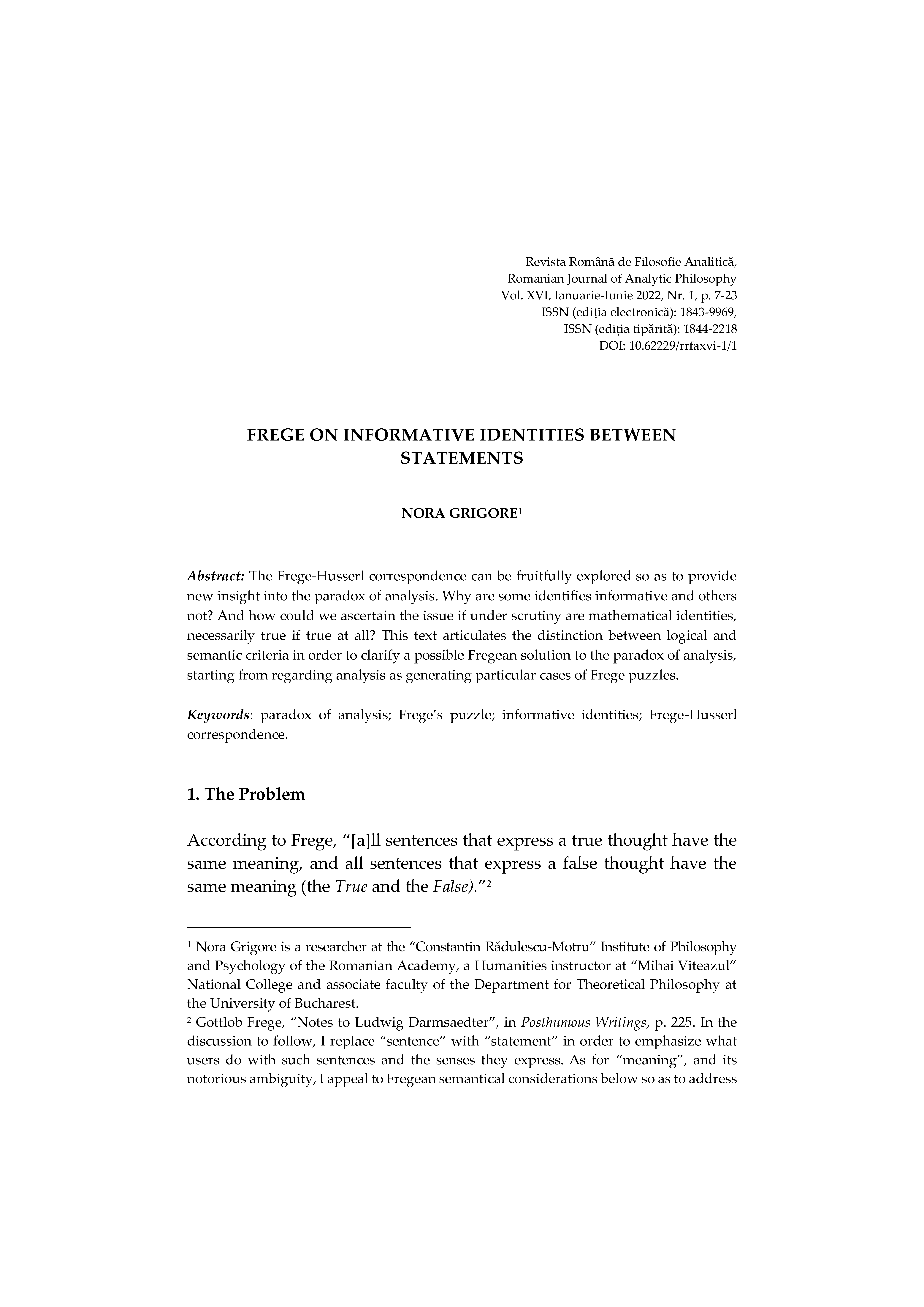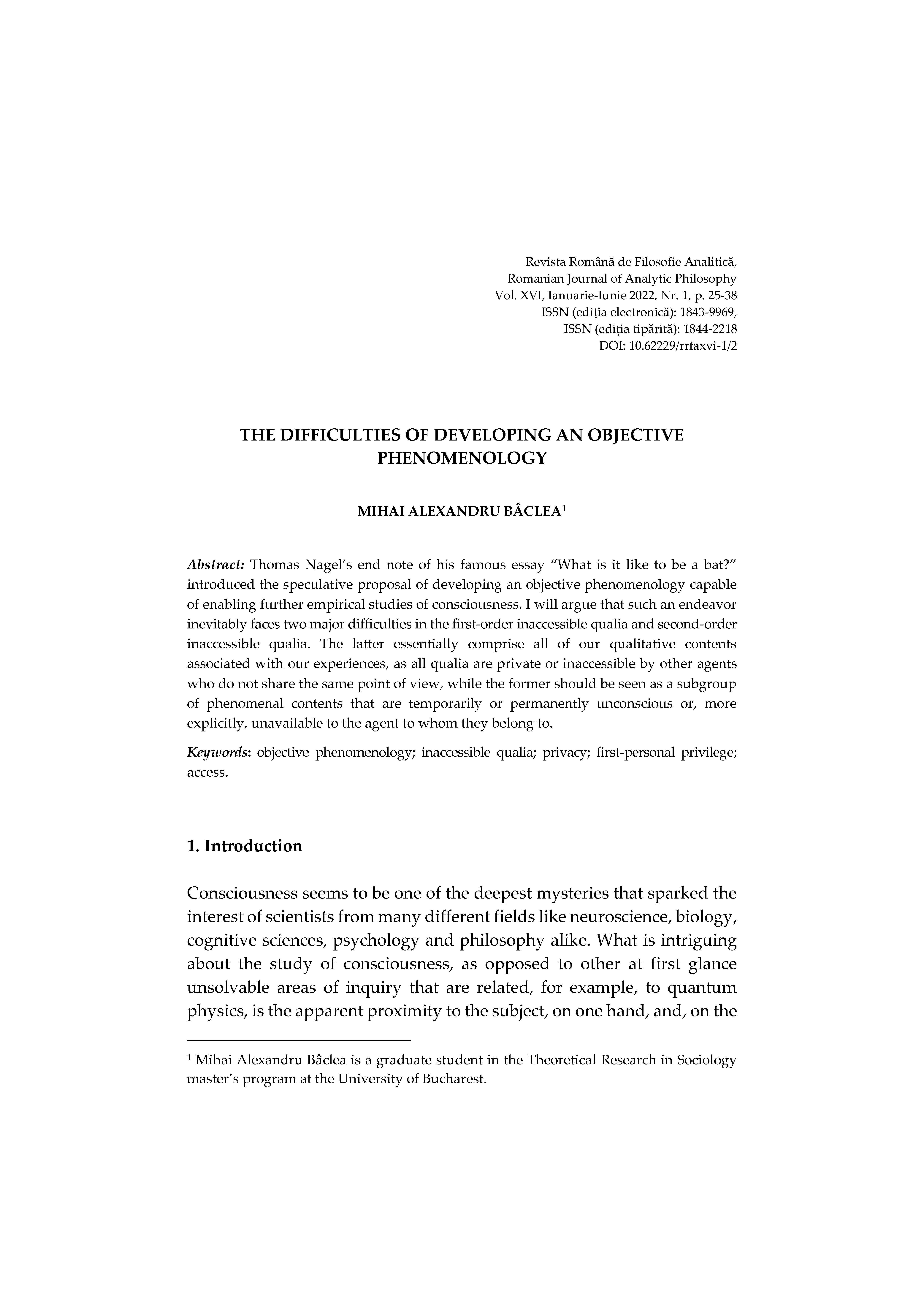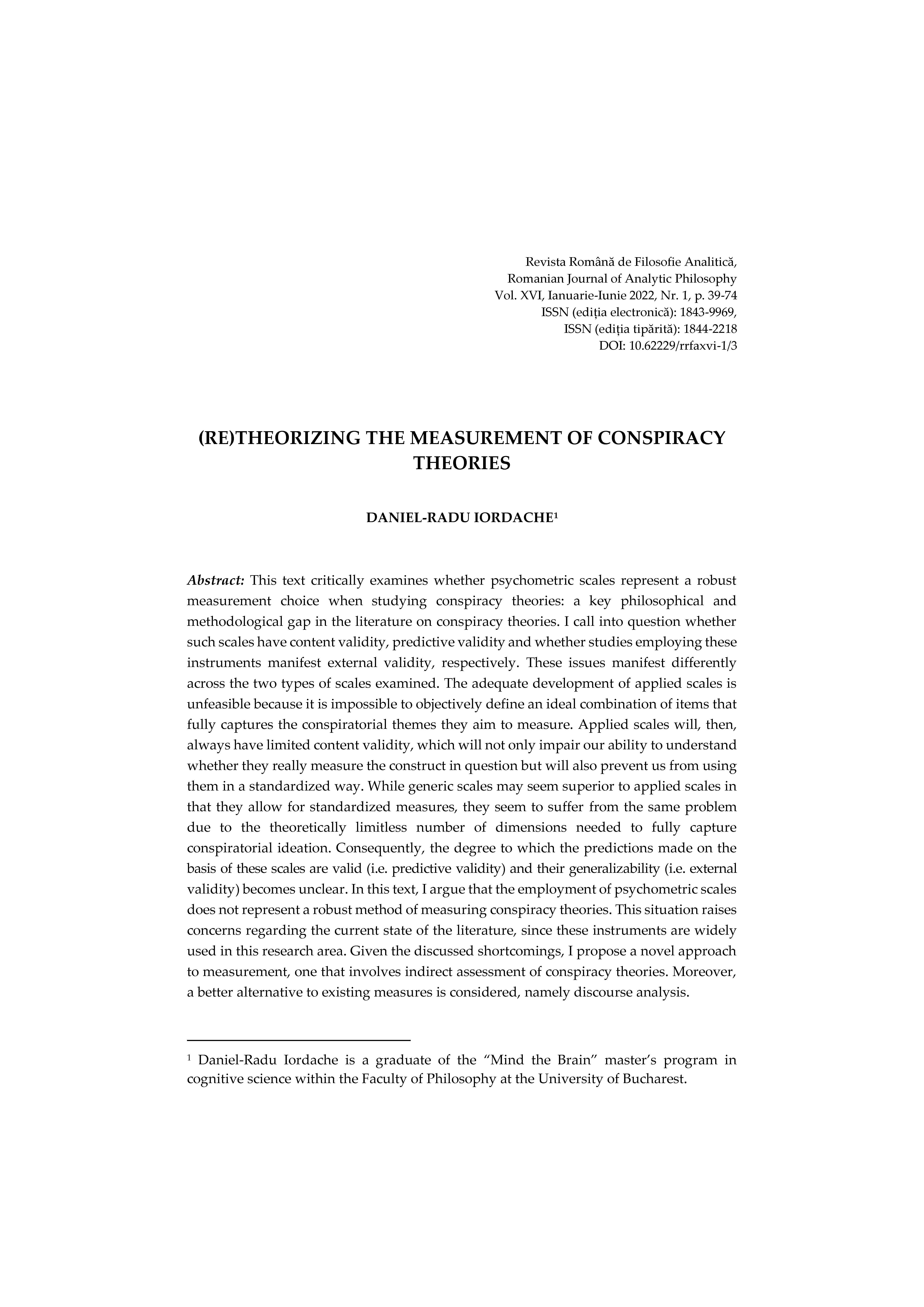Despre revistă
The journal publishes articles in analytic philosophy broadly construed. Topics range from logic, philosophy of mathematics and epistemology to metaphysics, philosophy of biology, philosophy of cognitive science and philosophy of language, but is not limited to these areas. Submissions are subject to peer blind review. For issues in the past two years, more than 28% of submissions were published after at most two rounds of review. The journal primarily targets early career researchers in philosophy or doctoral students, but carefully analyzes each submission and is open to all collaborative projects, especially those coming from researchers in social sciences or humanities.
Număr curent

Revista publică articole din domeniul filosofiei analitice în sens larg. Tematica variază de la logică, filosofia matematicii și epistemologie la metafizică, filosofia biologiei, filosofia minții, filosofia științelor cogniției și filosofia limbajului, dar nu se rezumă la acestea. Publicarea se face pe bază de recenzare colegială anonimă. Pentru numerele din ultimii doi ani, recenzarea a durat mai puțin de 3 luni în fiecare caz. Pentru numerele din ultimii doi ani, mai mult de 28% dintre textele primite la redacție au fost, după cel mult două runde de recenzare, publicate. Revista se adresează cu precădere cercetătorilor tineri în filosofie, la nivel postdoctoral sau doctoral, dar analizează atent fiecare contribuție și este deschisă tuturor inițiativelor de colaborare, în special din partea cercetătorilor din științele sociale sau umanioare.
Număr complet
Articles
-
FREGE ON INFORMATIVE IDENTITIES BETWEEN STATEMENTS
Rezumat
The Frege-Husserl correspondence can be fruitfully explored so as to provide new insight into the paradox of analysis. Why are some identifies informative and others not? And how could we ascertain the issue if under scrutiny are mathematical identities, necessarily true if true at all? This text articulates the distinction between logical and semantic criteria in order to clarify a possible Fregean solution to the paradox of analysis, starting from regarding analysis as generating particular cases of Frege puzzles.
-
THE DIFFICULTIES OF DEVELOPING AN OBJECTIVE PHENOMENOLOGY
Rezumat
Thomas Nagel’s end note of his famous essay “What is it like to be a bat?” introduced the speculative proposal of developing an objective phenomenology capable of enabling further empirical studies of consciousness. I will argue that such an endeavor inevitably faces two major difficulties in the first-order inaccessible qualia and second-order inaccessible qualia. The latter essentially comprise all of our qualitative contents associated with our experiences, as all qualia are private or inaccessible by other agents who do not share the same point of view, while the former should be seen as a subgroup of phenomenal contents that are temporarily or permanently unconscious or, more explicitly, unavailable to the agent to whom they belong to.
-
(RE)THEORIZING THE MEASUREMENT OF CONSPIRACY THEORIES
Rezumat
This text critically examines whether psychometric scales represent a robust measurement choice when studying conspiracy theories: a key philosophical and methodological gap in the literature on conspiracy theories. I call into question whether such scales have content validity, predictive validity and whether studies employing these instruments manifest external validity, respectively. These issues manifest differently across the two types of scales examined. The adequate development of applied scales is unfeasible because it is impossible to objectively define an ideal combination of items that fully captures the conspiratorial themes they aim to measure. Applied scales will, then, always have limited content validity, which will not only impair our ability to understand whether they really measure the construct in question but will also prevent us from using them in a standardized way. While generic scales may seem superior to applied scales in that they allow for standardized measures, they seem to suffer from the same problem due to the theoretically limitless number of dimensions needed to fully capture conspiratorial ideation. Consequently, the degree to which the predictions made on the basis of these scales are valid (i.e. predictive validity) and their generalizability (i.e. external validity) becomes unclear. In this text, I argue that the employment of psychometric scales does not represent a robust method of measuring conspiracy theories. This situation raises concerns regarding the current state of the literature, since these instruments are widely used in this research area. Given the discussed shortcomings, I propose a novel approach to measurement, one that involves indirect assessment of conspiracy theories. Moreover, a better alternative to existing measures is considered, namely discourse analysis.






